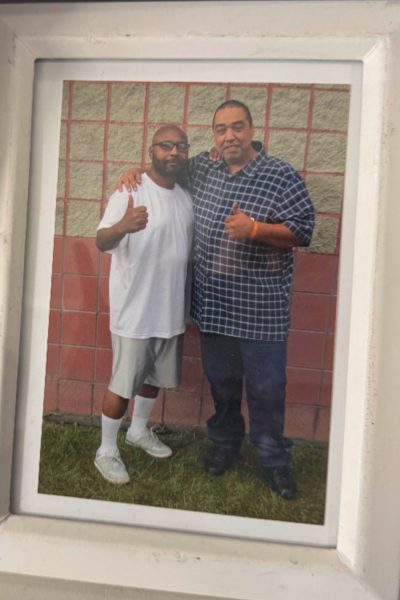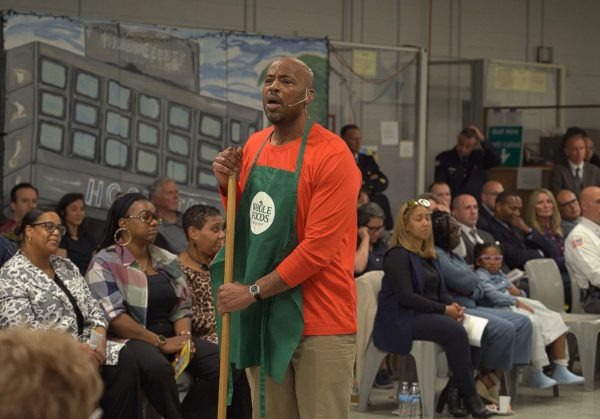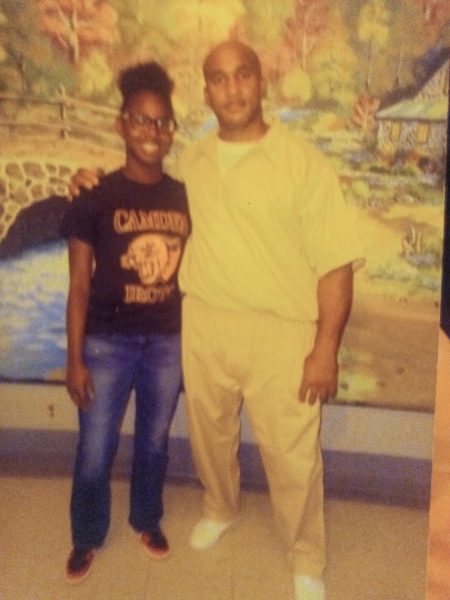As exam season approaches, the 15 NYU students taking Making an Exoneree have a different type of final: working to get victims of wrongful conviction out of prison.
The class, a four-credit Law and Society elective in the College of Arts & Science, was offered at NYU for the first time this semester in conjunction with a program with the same name created at Georgetown University. The program, which receives hundreds of potential wrongful conviction cases, pairs groups of undergraduate students with their “program participants” to produce a short documentary advocating for their exoneration. Throughout the semester, students not only dive into legal documents surrounding their cases, but also conduct interviews, visit the former crime scenes and maintain weekly communication with their program participants. The work culminates in a documentary showcase, held this year on May 14 at the Silver Center.
Marc Howard, a Georgetown professor and co-founder of MAE, told WSN that much of the work done by students involves the re-investigation of cases.
“I find that many wrongful conviction cases have been marked by a lack of proper investigation, where the original police and prosecutors rushed to judgment — perhaps based on mistakes, sometimes also based on more nefarious misconduct,” Howard said.
In the United States, about one in twenty incarcerated people are innocent, or about 100,000 of the nearly 2 million people currently in American prisons.
One of these victims of wrongful conviction is Marty Tankleff, Howard’s childhood friend, who was sentenced to 50 years to life in prison after being charged for the murder of his parents at age 17. Howard eventually became a lawyer and helped exonerate Tankleff after 17 years of incarceration. Together, they founded the program in 2018 at Georgetown, where they co-teach the MAE class. In the last seven years, MAE has led to the release of 12 wrongly convicted individuals and has expanded to Princeton University, the University of California, Santa Cruz and, this year, NYU.
“I came to realize that investigation is the key to trying to get to the root of a wrongful conviction,” Howard said. “I also realized that investigation is something that undergraduate students would be particularly good at, because it involves a lot of determined, dogged work … poring over documents, connecting dots and, in some cases, re-interviewing witnesses and going to a crime scene.”
CAS junior McKenna Lipkin, who is taking the MAE class, began the semester by reading hundreds of pages of legal documents surrounding the case of her program participant, Damon Cobb. In 1992, 21-year-old Cobb was convicted for the murder of a man he didn’t know, based on the verbal testimony of Cobb’s ex-girlfriend. Now, he has been imprisoned for 33 years.

“His grandmother [who raised him] just passed away last week, and he didn’t get to say bye to her,” Lipkin said. “We went to their home and could see their whole family was grieving. But where’s Damon? He’s in a cage because someone accused him of something that he didn’t do.”
This semester, Lipkin and her group members visited Cobb’s family in Washington, D.C., where they learned about his life and recorded interviews for their documentary. The students are also preparing a parole packet for Cobb, whose parole hearing is set for this June.
During class, students have been working with their groups to discuss evidence, plan the rough cuts of their documentaries and resolve potential issues for their projects with instructor Shoshanna Coalson, an NYU doctoral student.
“I had a schedule planned out in the beginning of the semester, but as we’ve gone through cases, students have been like, ‘I don’t know what to do about this specific issue,’” Coalson said. “I have all of the groups walk me through where their cases are, and we try to talk through any kind of roadblocks they’ve come up with … connecting with resources, [getting] through legal roadblocks, reaching out to witnesses.”
Though the MAE program pairs each group of students across its member universities with Georgetown law students for legal advice, the process of re-investigation and producing the documentary is up to the students.
“To be able to help people get free is beautiful,” Howard said. “But even more importantly, to be able to show that our system needs major reform and to try to bring about that reform through justice in cases … and then to do it with undergraduate students, it’s like a win-win.”
Each legal case taken on by students is in a different stage of the process towards exoneration — in turn, each documentary has a different goal. Unlike most other program participants, Kenny Portee, who was convicted for second-degree murder in 2006 with a sentence of 50 years to life, doesn’t have any legal representation. As a result, CAS senior Sarah Ruth Brock and her group are using their documentary as a means of pitching Portee’s case to law firms.

“We have a pretty strong feeling that there could be some kind of prosecutorial misconduct involved,” Brock said. “[We’re] contacting jurors, witnesses, friends of witnesses, that kind of thing — just trying to get as much information as we can to bolster the innocence claims that we’re making.”
In addition to having their documentaries published on YouTube and the MAE website, students have also been creating Instagram accounts for their program participants in hopes of spreading awareness and displaying the human side of their cases.
“I’m not letting myself down by not doing well — I’m letting someone else down,” CAS junior Daisha Sadiq said. “It’s a weight, but it’s a motivating weight that makes us want to do better for our participants.”
Though the program can currently only accommodate about 15 participants per year, MAE has received hundreds of letters from family members and friends of wrongly accused individuals. Sadiq’s program participant, Stephon Downer, has been in prison for more than 23 years for the murder of a man during a drug deal gone wrong — one that he wasn’t present for.

“Our participant, unfortunately, has exhausted all their appeals … which is why re-investigation is so important — so we can find new avenues to present to the [New Jersey] Conviction Review Unit,” Sadiq said. “It’s our job to create a documentary that can advocate, because our case is relatively unknown.”
Interviews have been a cornerstone aspect of the re-investigation and documentary processes for students, who frequently video chat with their program participants from prison and have traveled across the East Coast to visit their families. Gallatin junior Georgia Doyle, one of Sadiq’s group members, was inspired by Downer’s bright personality and legal knowledge.
“[He] is extremely well-versed in his case and case law,” Doyle said. “We’ve heard that from a couple of other participants as well — in their time being wrongly convicted and imprisoned, they have at least been able to flourish in other kinds of ways.”
Even though the end of the semester marks the end of their contract working for MAE, students hope to leave a lasting impact on the trajectory of their program participants’ lives through their documentaries.
“Our focus now is the documentary, and getting that together, publicizing it and getting people to hear his story,” Lipkin said. “Because we know he’s innocent — but what does that matter if other people don’t believe it?”
Contact Lauren Ng at [email protected].






















































































































































